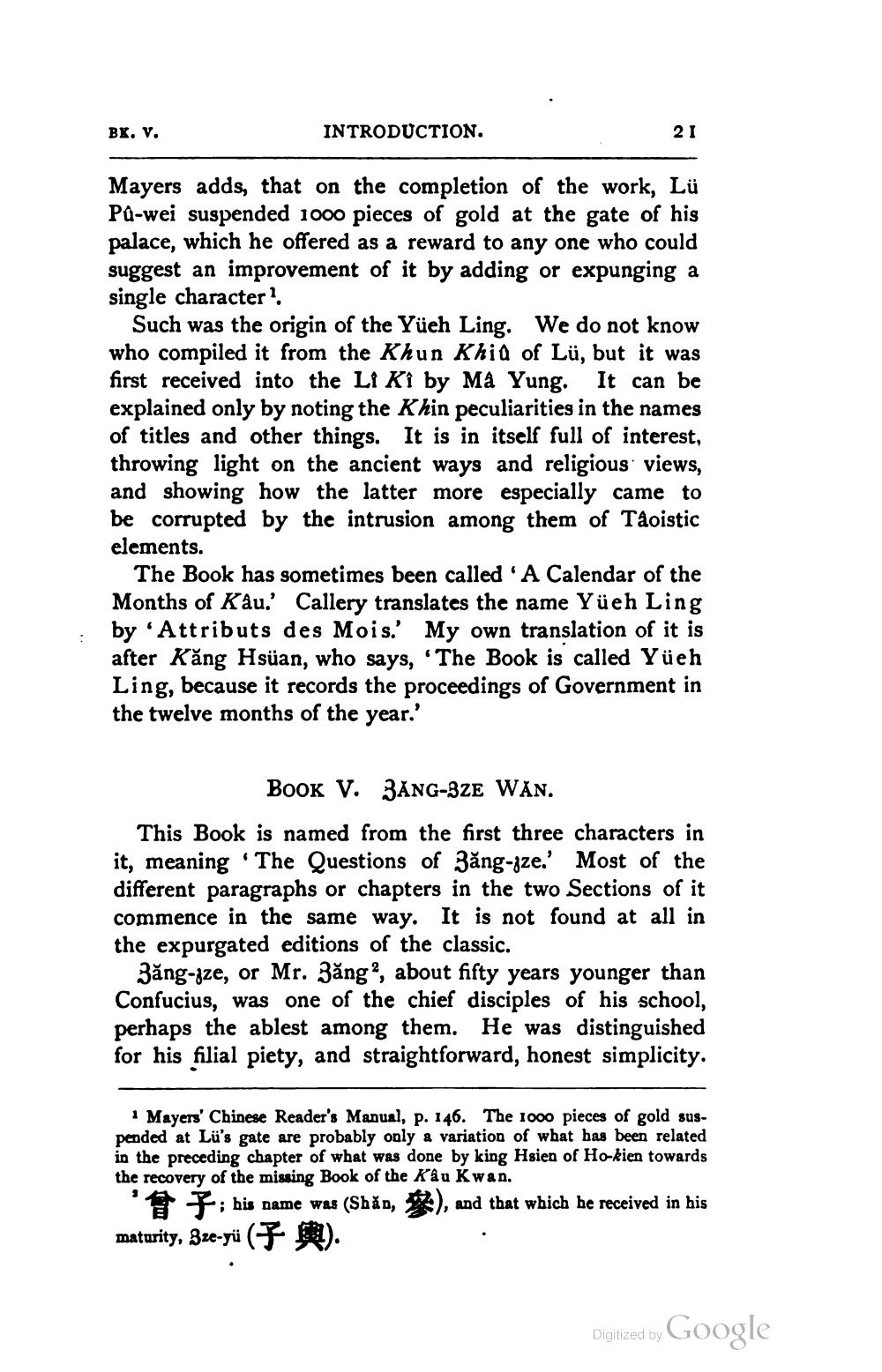________________
:
BK. V.
INTRODUCTION.
21
Mayers adds, that on the completion of the work, Lü Pu-wei suspended 1000 pieces of gold at the gate of his palace, which he offered as a reward to any one who could suggest an improvement of it by adding or expunging a single character1.
Such was the origin of the Yüeh Ling. We do not know who compiled it from the Khun Khia of Lü, but it was first received into the Li Ki by Må Yung. It can be explained only by noting the Khin peculiarities in the names of titles and other things. It is in itself full of interest, throwing light on the ancient ways and religious views, and showing how the latter more especially came to be corrupted by the intrusion among them of Taoistic elements.
The Book has sometimes been called 'A Calendar of the Months of Kâu.' Callery translates the name Yüeh Ling by 'Attributs des Mois.' My own translation of it is after Kăng Hsüan, who says, 'The Book is called Yüeh Ling, because it records the proceedings of Government in the twelve months of the year.'
BOOK V. 3ANG-3ZE WAN.
This Book is named from the first three characters in it, meaning 'The Questions of 3ăng-jze.' Most of the different paragraphs or chapters in the two Sections of it commence in the same way. It is not found at all in the expurgated editions of the classic.
3ăng-ze, or Mr. 3ăng, about fifty years younger than Confucius, was one of the chief disciples of his school, perhaps the ablest among them. He was distinguished for his filial piety, and straightforward, honest simplicity.
Mayers' Chinese Reader's Manual, p. 146. The 1000 pieces of gold suspended at Lü's gate are probably only a variation of what has been related in the preceding chapter of what was done by king Hsien of Ho-kien towards the recovery of the missing Book of the Kâu Kwan.
2
; his name was (Shăn,), and that which he received in his maturity, 3ze-yü().
Digitized by
Google




